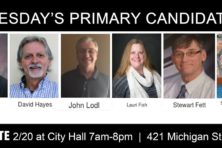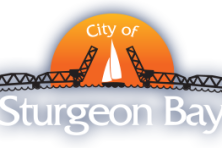Meet the Candidates: Sturgeon Bay Common Council
- Share
- Tweet
- Pin
- Share
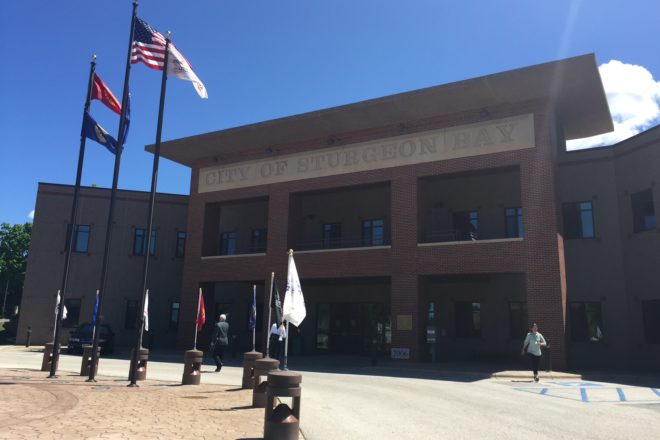
Three Sturgeon Bay Common Council seats are up for election April 3.
In District 2 former mayor Bob Starr faces off with David Hayes for the right to replace the retiring Ron Vandertie. The 58-year-old Hayes has a BA in anthropology, MA in historic geography, and PhD in geography and has spent 25 years in civil service. Hayes served four years in the U.S. Navy and said he has facilitated more than 50 public open houses and public meetings.
A Sturgeon Bay High School graduate, Starr has spent 35 years in real estate and served as President of the Door County Humane Society. The 64 year-old Starr serves on the Plan Commission and Door County Tourism Zone Commission.
In District 4, Incumbent Richard Wiesner, 48, faces a challenge from Kelly Avenson, 34. Wiesner is a Sturgeon Bay High School graduate who attended Winona State University. He has served three terms on the council and serves on the Community Protection and Services, Finance, Purchasing and Buildings Committee, the Plan Commission, Library Board, Utilities Board and the Service Committee at Bay View Lutheran Church.
Avenson earned an associate’s degree in professional photography and owns two businesses in Sturgeon Bay. A member of the Sturgeon Bay Visitor Center board and volunteer with the Women’s Fund of Door County, Avenson has been an outspoken observer of council for several years.
In District 6 incumbent Stewart Fett, 63, is challenged by newcomer Seth Wiederanders, 45. Wiederanders is a 1991 graduate of Sturgeon Bay High School and board member of the League of Women Voters of Door County. He served on the Lakeshore CAP board from 2009-2016 and is a member of the Community Services Regional Steering Committee, Comprehensive Community Services/Coordinated Services Team, and Children’s Community Options Program Committee. Fett is a Southern Door and NWTC-Green Bay graduate who has been alderman for seven years. In addition to serving on several city committees, Fett serves on the board of the Boys and Girls Club and is a member of Loaves and Fishes and the Sturgeon Bay Lions Club.

District 2
What are the best attributes and skills you would bring to the common council?

Bob Starr
Bob Starr: I learned much through my experience on the City Council during the 1990’s. I have also been productive in serving on other various boards and commissions by respecting other viewpoints, listening well to others, thoroughly analyzing issues and then communicating a common sense position. Proper communication is critical to ensuring others understand the issue and positions I might establish. I am able to communicate in an understandable manner and am interested in bringing those skills to the City Council.
David Hayes: My greatest skill that was sought out by multiple agencies in the federal, state, and municipal governments was the ability to build consensus from dramatically opposing viewpoints or missions. For example, the Secret Service’s mission is much
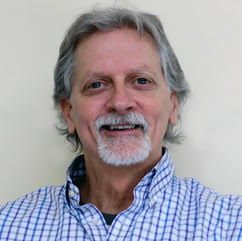
David Hayes
different than Department of Energy. The consensus building skill is much needed when a large or small community is faced with how best to move forward and prosper economically, socially and physically. As a community planner/developer another skill that I developed and honed over the 25 years in civil service is the ability to listen and understand the context in which words are spoken. Words spoken in a open public setting may be different than words in a targeted consensus building meeting. The most important thing is to allow everyone a voice.
Do you support the Premier Resort Area Tax proposal to pay for street improvements? If voters and the legislature don’t approve that solution, what mechanism – if any – would you support to pay for improvements?
Bob Starr: The condition of Sturgeon Bay city roads has deteriorated like many other communities in Wisconsin. The State revenue caps now in place for a number of years, along with 40 percent increase in the cost of blacktop because of a new State law, have both combined to limit the ability of Sturgeon Bay to properly maintain our roads. Road maintenance should be thought of as an operational expense, an expense we need to budget every year. We can always look for possible grants to help out, but they have become scarce in these days of tighter State and Federal budgets and therefore unreliable for every year budgeting. We can begin borrowing for road work, but I feel it to be bad policy to start borrowing for this type of annual cost. It would also be more expensive because of added interest. Therefore, I fully support a “yes” vote for the PRAT tax as the best and least expensive way for us to fix the roads quicker. It takes very little from residents and asks tourists to share in the cost. If that plan fails in the referendum vote or the state legislature fails to approve, the city would have to review other options such as a wheel tax which will generate much less than the PRAT tax and be paid entirely by local residents.
David Hayes: The only way I would support a PRAT is if it had an established Sunset Clause/Trigger. In other words if a PRAT is implemented it would end at a certain date or when a certain amount of money was raised or a certain percentage of streets were improved to a better level of service. When I sat on numerous transportation planning boards across the country, we first suggested that the Roads and Transportation Department seek funds from Materials Testing Programs in the state and federal highway departments. The state and federal highway departments are always testing new materials in the asphalt and concrete mixes that are laid down for different vehicle weight classes, we should approach these departments and offer our community as a testing site.
The mayor recently removed public comment sessions from common council meetings? Do you agree with that decision, and do you believe public comment sessions are helpful to the council in making decisions?
Bob Starr: I am aware that the Mayor felt he had to remove the comment period from common council meetings recently. I am also aware that he did not wish to do so but felt some members of the public had occasionally spoken disrespectfully to elected officials. I am confident the microphone will likely be turned back “on” once a well defined plan for open and respectful commentary can be established. I do believe public comment sessions can be helpful to the council in making decisions, especially when diversity of opinion is expressed.
David Hayes: I do not agree with the Mayor’s decision to remove public comment sessions from common council meetings. I have facilitated/conducted over 50 public comment meetings across the country. My experience always has been that public engagement improves the decision-making process at every level of government. When the public is allowed to contribute to the dialogue they also take some level of ownership in the project/process. The community comes together often with varied opinions which is good for community growth. Open comment periods encourage citizens to brainstorm new ideas that were never thought of before, and the council learns and listens to the new ideas when making their decisions. Without public comment, the council typically adopts or makes decisions based on personal agendas or persuasion from a few folks that did not speak publically. When that happens the public that was not allowed to speak does not understand the decision or how the council came to make the decision, and then trust is lost between the citizens and the administration.
What specific actions should the city take, if any, to repair its relationships with citizens and invite public input?
David Hayes: Everything I recommend is to renew the trust between the residents and City Administration/Common Council.
Immediate steps should be: allowing public comment during the Common Council meetings; having set office times for public listening sessions – these would get the most benefit when more than one Alderperson attends and when the Alderpersons don’t share the same desired outcome (assuming their opinion has already formed); and a published letter to the residents from the Mayor simply stating what is being discussed/researched/planned in the last week and in the upcoming week – this would allow the Mayor to release decisions on issues facing the City.
Intermediate and Long-Range steps should be: review all committees/authorities and ask, what is the value added with their current structure and membership; review all out-sourced contracts, and determine the efficiency and objectivity of the results; review or create a Sturgeon Bay Position Management Plan, that looks at each position in the administration and asks for the value added, the effectiveness and interrelationship of each position; finally, create a Sturgeon Bay Days to celebrate who we are. There are many festivals for our guests – we need to celebrate who we are as a community – celebrate our diverse history – celebrate our shared future – celebrate our leaders – celebrate our citizenship. I chose to move here after looking at towns in New York, Florida, California, and New Mexico. I chose Sturgeon Bay because it feels like home to me and I want every citizen to have that feeling – a place to call home, a place where you trust your city officials and can talk to them openly, a place that has tons of fresh air and the sounds of seagulls and bridge whistles and children screaming at each other at the playground and tugboats. That’s a Sturgeon Bay I want to be part of.
Bob Starr: In general, the city should always remind the public of the many ways to provide input on issues either through calling, personal visits, or writing to their Alderperson, Mayor, City Administrator, or Department Heads. I have always found our elected or hired individuals to be very accessible through such methods of communication. Social media can also be used to communicate with residents about issues and invite comment. Relationships can be improved through mutual respect and better communication.
DISTRICT 4
What are the best attributes and skills you would bring to the common council?
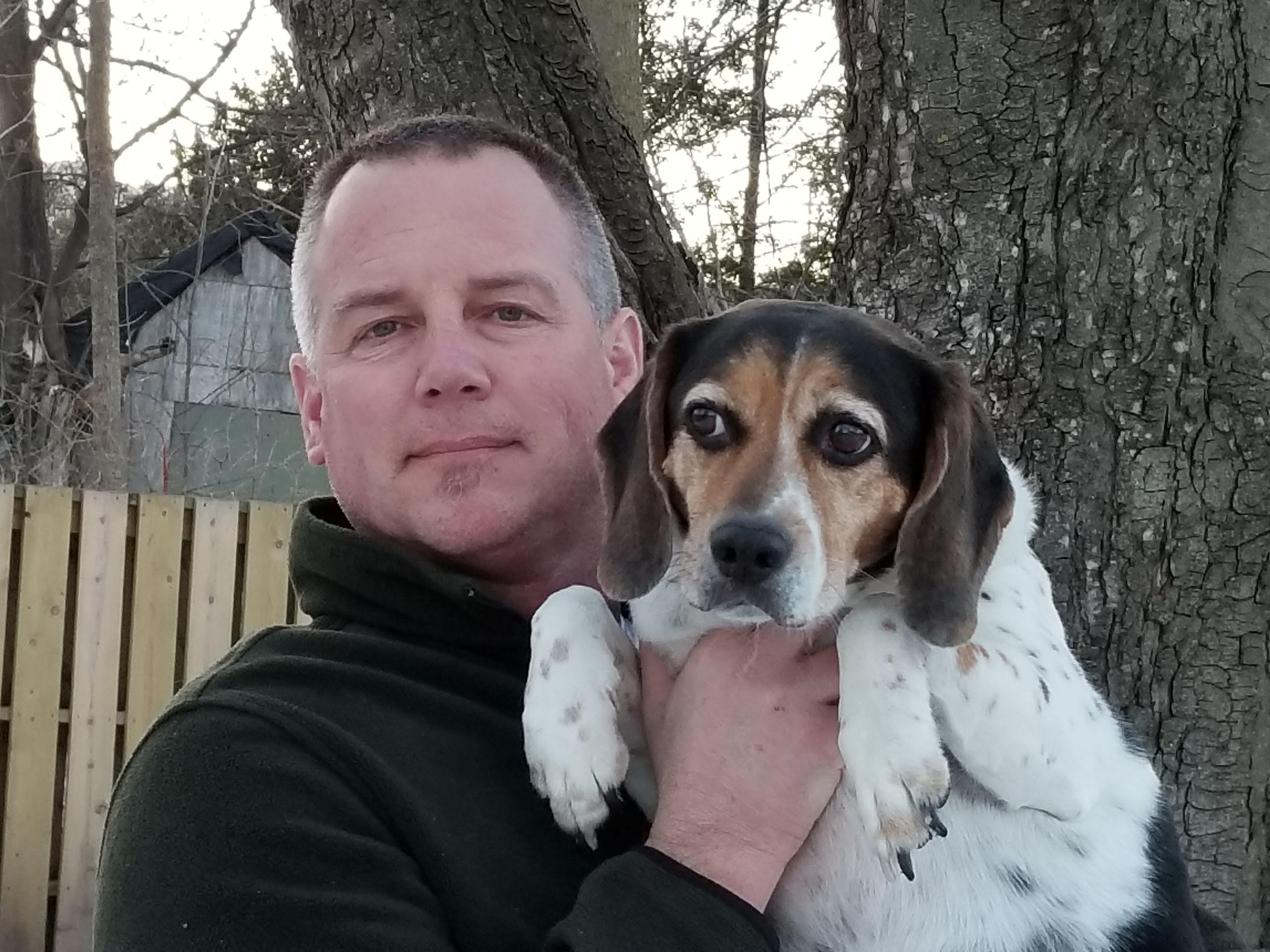
Richard Wiesner
Richard Wiesner: I have a vast background in restaurant and construction management, which assists me with budget, personnel and planning aspects of the job.
Kelly Avenson: I bring an entrepreneurial spirit with fresh perspectives and a drive to create a community that is inclusive and sustainable for our future generations. Communication is key to any relationship and I will not just listen but I will hear, respect and value all viewpoints. There is much we can learn from those who differ in opinion.
Do you support the Premier Resort Area Tax proposal to pay for street improvements? If voters and the legislature don’t approve that solution, what mechanism – if any – would you support to pay for improvements?
Richard Wiesner: I do support the PRAT tax. I also believe that a strong showing of support from us citizens will aid the legislature in passing this tax. If this tax fails, I would support the ad hoc committee reforming to look into other options, if any exist other than wheel taxes.
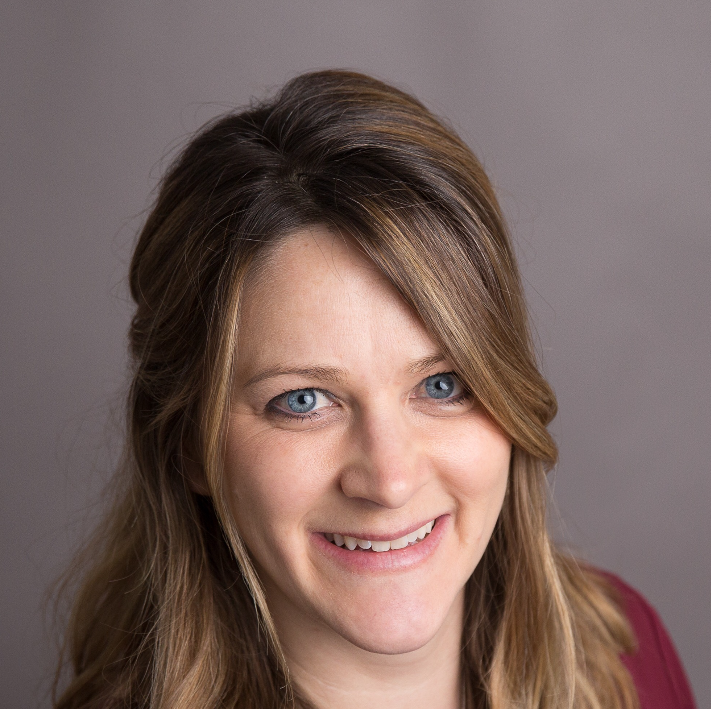
Kelly Avenson
Kelly Avenson: Increasing taxes should always be our last resort. What is nice about the referendum is that the people can use their voice to tell their elected officials what they want. If my constituents vote in favor I will support them. If voters and legislatures do not approve the PRAT tax, I would support further discussions with the Ad Hoc committee and other members of the community and city staff to be sure we have exhausted all other avenues before placing the full burden on the city residence.
The mayor recently removed public comment sessions from common council meetings? Do you agree with that decision, and do you believe public comment sessions are helpful to the council in making decisions?
Richard Wiesner: I believe that the mayor was justified in ending public comment at city council meetings. Some members of the public chose to use this speaking opportunity to verbally bash city staff & sitting members of the council. Citizens are encouraged and have been encouraged to speak at the committee levels. This is where the true discussions on the topics happen. I believe that public comment should be allowed, but I also believe that this opportunity to speak to the council should be in civil tones and directed to topics.
Kelly Avenson: People would like to participate and attend the meetings and share their voice but are unable due to this item removal along with the noon meeting times. I do not agree that council meetings are to just conduct business, I believe it is also to hear from our constituents so we as council members can gather their input and make sure we take in all views and opinions before making decisions and casting votes. We are not only limiting people’s voices – we are limiting those who can run for office or serve on committees, and we are limited to a City Council that doesn’t represent the people it serves. We need to open the door so working citizens of all backgrounds and ages can run and be heard or we are failing an important portion of our population.
What specific actions should the city take, if any, to repair its relationships with citizens and invite public input?
Richard Wiesner: Public input is always invited. Alderperson’s contact information is always available online – email and/or phone number. Contact your alderperson. Explain to them your issues. If your alderperson won’t take your call and/or speak civilly with you . . . call or email me.
Kelly Avenson: Bring back night meetings, bring back public comment at Council meetings, hold listening sessions when needed to gather more public input and to be able to have dialogue, and encourage the appointments of diverse viewpoints and ages to committees.
DISTRICT 6
What are the best attributes and skills you would bring to the common council?
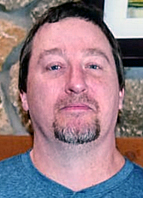
Seth Wiederanders
Seth Wiederanders: Since I made the decision to run for City Council in mid November I’ve learned a lot. I’ve learned how diverse the district I live in really is and I’ve got to know my neighbors a little better. I’ve learned that I enjoy engaging conversations with the people I hope to represent. I believe my years of serving locally on many Boards and Committees makes me well suited to be the person representing District 6 on City Council. I know how to work in a group setting with people that don’t agree all the time. Finally, I really want the Job! This has been such a great experience so far and I want it to continue. I am excited about participating in Local Government because what our city needs most is positive change.
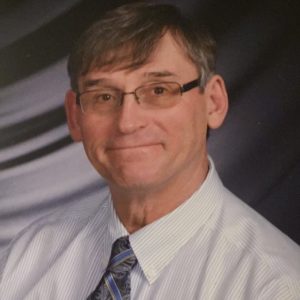
Stewart Fett
Stewart Fett: First, I have been a resident of the city of Sturgeon Bay for 35 years. Second, through my positions as Alderman on the city council along with my management experience at Fincantieri and, my involvement in community organizations and the volunteer positions I hold, I have witnessed many different perspectives of the city. Third, I have gained significant experience being a member of the city council. During the past seven years I have worked hard to provide increased economic opportunity to the citizens of Sturgeon Bay by cultivating a climate where existing businesses like Cadence Inc., Therma-Tron-X, Wire Tech, Hatco, and Pro Products Inc. were able to expand their business. Overall, the value of the Industrial Park grew by 9.2 million dollars from 2014 through 2017, a 28 percent increase. Fourth, I served on the Parks Committee which invested in the waterfront parkway that extends from Memorial Drive to Stone Harbor and from Sawyer Park to Obtumba Park. This project has given city residents and visitors public access to 75 percent of the Sturgeon Bay waterfront. Lastly, I have listened to the people who live in this fine city and I will continue to do so. I use their input to form my decisions on what is needed, so we as a community continue to grow, prosper and enhance our quality of life.
Do you support the Premier Resort Area Tax proposal to pay for street improvements? If voters and the legislature don’t approve that solution, what mechanism – if any – would you support to pay for improvements?
Seth Wiederanders: It has been estimated that the City needs to double it’s budget for roads. I agree with the PRAT in that it involves taxing tourists, not just those of us who own vehicles and live in the city limits aka the “Wheel Tax.” I think that the PRAT could be usefull in reducing the City’s dependence on property tax revenue to fix roads. I also think we need to get creative. I’ve heard that there are grants from the state and federal government to test new materials. Maybe we could find some funds through those avenues too. I don’t think we should rely on the PRAT entirely and that if it is implemented it should have a specific end date included. I don’t believe we can “tax” our way out of this indefinitely. We have a particular climate here in SB with an extreme temperature range. If we can secure funds to test new materials that would save us some money right now. Maybe the new materials tested would last longer. Anyone who has driven down Egg Harbor road during a cold snap will tell you that the materials we have used in the past might not be the best for our climate.
Stewart Fett: Funding street and sidewalk improvements is challenging. Using debt is essentially the same as raising property taxes; special charges like wheel taxes are an option, but only apply to the people who have vehicles registered in the city. Cutting other programs to pay for streets is difficult as well; as the amount of money needed is significant and cutting programs has negative effects elsewhere.
The citizens will have an opportunity to vote on this issue at the spring election if the tax referendum is passed, the Governor has to okay it. One thing also to keep in mind is our major tax contributors are manufacturing and tourism. If this method of paying for our infrastructure upgrade is not passed and approved, we will have to explore other financial options.
The mayor recently removed public comment sessions from common council meetings? Do you agree with that decision, and do you believe public comment sessions are helpful to the council in making decisions?
Seth Wiederanders: I believe that people who live in the city should be able to voice opinions and share insight at all common council meetings. I believe that at least 1/2 hour total should be allowed for the people to participate. People should have a voice in local government and be encouraged to organize prior to common council meetings so they can focus on important points and hopefully add to the discussion at future meetings. The Common Council exists to represent the citizens of Sturgeon Bay and public comment should be included in all open meetings.
Stewart Fett: Public comment is always welcome. As president of the Sturgeon Bay Utilities and Chairman of the Finance purchasing and building committee, the agendas allow for public comments. I support public comments at all meetings.
What specific actions should the city take, if any, to repair its relationships with citizens and invite public input?
Seth Wiederanders: First, we need to bring back public comment to all common council meetings. I am also in favor of holding listening sessions on topics that concern a large group of citizens. Open and accessible local government is key to re-establishing relationships with people who feel they no longer have a voice. It is not enough for city government to simply push through agendas that they think are in the city’s best interest. The public needs to be involved and invited to participate.
Stewart Fett: Our city is made up of diverse people with diverse ideas. One of the greatest challenges in modern city governance is communication with the public. For years, newspaper, television and radio were the principal means of mass communication, all that has changed. For interested people, residents can now watch a council or plan commission meeting from the comfort of their own home, via either the City’s cable access channel, live streaming on the City’s website.
Minutes and recorded meetings are posted on the website as well and current updates are given via the city’s social media Facebook page. The city has invested monies in public communications infrastructure. Continued investment in modern communication technology and methods is imperative for engaging the citizenry and delivering the best possible services.
Civility is an important factor if strong commitments and ideas are going to be communicated and considered.

